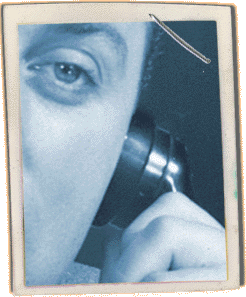Spy on Employees
| |
|
|
|
|||
| |
|
|
|
|||
|
|
||||||
|
|
THE WALLS HAVE EYES page 2 of 5 | |||||
|
|
||||||
|
|
The Many Ways Bosses Spy on Employees |
|
Jennifer Vogel | |||
|
|
|
|
|
|
|
|

|
But the picture has
changed. Thanks mainly to
automation and capital flight, there are fewer decent-paying jobs to go
around and real wages have slipped dramatically since 1973, with the
exception of a small upturn in the last year and a half. Employers have
taken advantage of the upper-hand, hiring more people on a contract basis
to avoid insurance
and other costs, breaking and/or discouraging unions, and invading our
privacy in any way they can.
Business owners argue that they're so nosy because they face extreme circumstances--rising insurance costs, the threat of losing a "negligent hiring" lawsuit, the need to protect trade secrets. "Employers are under unprecedented pressure to be productive," explains Lewis Maltby, director of the ACLU's Workplace Rights Office. "But instead of responding by empowering their workers to be more creative, they've cracked down with sweatshop techniques. It's just like the 1920s, except by electronic means." Or, as Doug Henwood, publisher of the excellent newsletter Left Business Observer, puts it, "They know they're screwing their workers and they know their workers would like to screw them. So, they try to monitor and control them as much as possible." This level of workplace paranoia hasn't existed since Henry Ford sent committees around to workers' homes to see what newspapers they read. To insure that they don't hire a lemon, managers subject potential employees to background checks and batteries of invasive tests, from drug urinalysis to lengthy personality tests (the lie detector, once a pre-employment tool in about 1 million cases a year, was effectively outlawed for that purpose in 1988 because of its notorious inaccuracy.) |
|||||||||||||
|
|
||||||||||||||
|
|
|
|
||||||||||||
|
|
 |
|
||||||||||||
|
|
Web Lab |
|||||||||||||